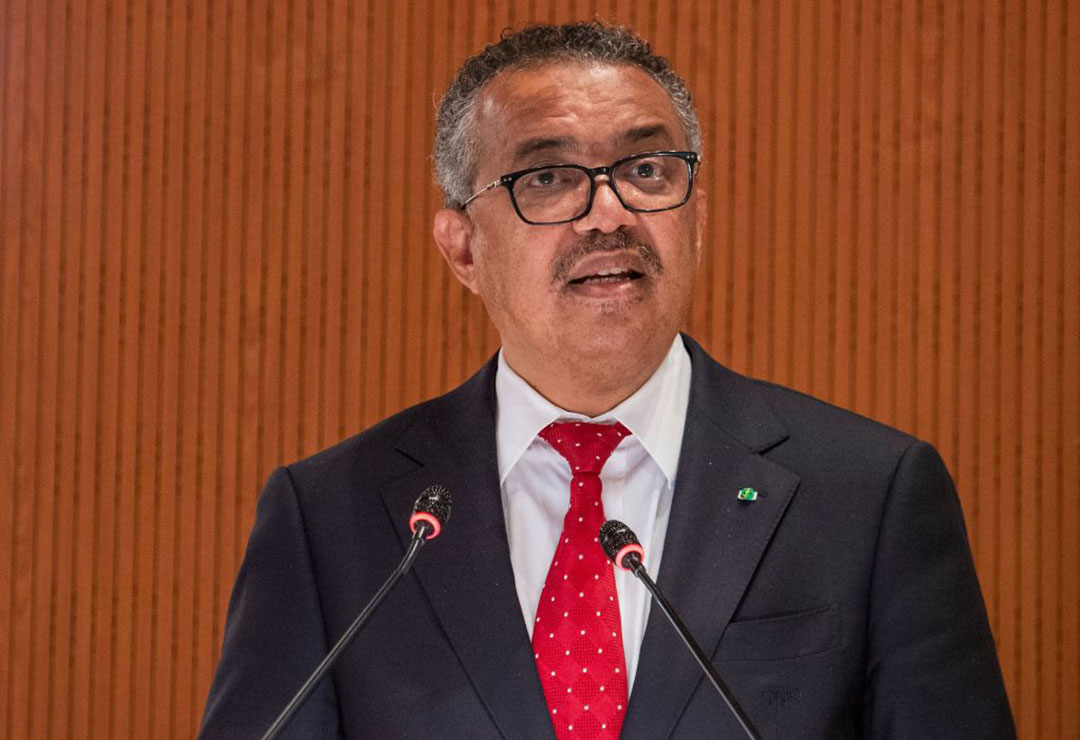WHO: COVID-19 ‘Running Freely’ as New Strains Drive Rising Cases
ADF STAFF
After declining globally in May and June, COVID-19 infections are rising again, this time powered by the rapid spread of the BA.4 and BA.5 strains of the omicron variant.
“New waves of the virus demonstrate again that COVID-19 is nowhere near over,” Dr. Tedros Adhanom Ghebreyesus, director-general of the World Health Organization, said during a recent media briefing.
The new strains, which drove a wave of infections in South Africa this year, are spreading across 110 countries amid very different conditions than their predecessors.
For one thing, nearly all countries in the world have relaxed or eliminated pandemic prevention protocols, such as masking and social distancing.
At the same time, testing rates for COVID-19 have plummeted, leaving scientists with less information about the spread of the BA.4 and BA.5 strains and the potential rise of new variants beyond omicron.
“The virus is spreading at a very intense level at a global level, and our ability to detect cases has reduced,” Dr. Maria van Kerkhove, the WHO’s technical lead for COVID-19, told the same briefing.
BA.4 and BA.5 are becoming the dominant strains of COVID-19 in many countries. According to the WHO, BA.5 accounted for 52% of new cases in late June.
In Africa, BA.4 and BA.5 have been found in 19% and 21% of samples, respectively, across the continent, according to the Africa Centres for Disease Control and Prevention (Africa CDC). BA.2, the parent of BA.4 and BA.5, accounts for 25% of cases in Africa, the Africa CDC said.
Although B.A.4 and B.A.5 infections are not more severe than previous strains, they are more capable than any previous COVID-19 strains of overwhelming a person’s existing immunity to COVID-19. That’s especially true if someone gained immunity from an earlier variant.
That characteristic, which scientists call “immune escape,” can lead to more cases of reinfection, raising the risk for cases of long COVID in the process, experts say.
New COVID-19 cases in Africa rose steadily from mid-May to mid-July. Testing has dropped, although positivity rates remain about 11%, according to the Africa CDC.
With an estimated 98% of its population having some level of COVID-19 immunity, South Africa’s B.A.4/B.A.5 wave proved to be milder than previous waves. Other countries are having different experiences as the highly infectious strains push up hospitalizations and deaths.
“Deaths have climbed steeply for the past five weeks,” said Dr. Matshidiso Moeti, the WHO’s regional director for Africa. “This is a clear warning sign that hospitals in the most impacted countries are reaching a breaking point.”
Under-resourced health systems in countries are facing dire shortages of health workers, supplies, equipment and infrastructure needed to care for severely ill COVID-19 patients, Moeti said.
Among African regions, North Africa has seen the sharpest increase in new COVID-19 cases — up 85% in recent weeks — with Morocco and Tunisia bearing the brunt of the growth. Other regions report case growth at half that rate or less. Southern Africa, which experienced the BA.4/BA.5 wave before the rest of the continent, has seen its new case growth rate decline.
Moeti and other public health experts continue to urge people to take precautions to avoid infecting themselves, elderly members of their community and others whose health issues make them particularly vulnerable.
“There is a major disconnect in COVID-19 risk perception between scientific communities, political leaders and the general public,” Tedros said.
Every new infection is a chance for the COVID-19 virus to create another variant. Scientists believe the omicron variant developed in someone with a compromised immune system whose body spent a long time attempting to purge the virus. Each attempt by the patient’s body resulted in a new variation of the virus until omicron appeared and was able to spread.
Tedros urged countries to increase precautions and testing as BA.4 and BA.5 gain traction.
“The virus is running freely, and countries are not effectively managing their disease burden based on their capacity,” Tedros said. “As the virus pushes against us, we must push back.”


Comments are closed.